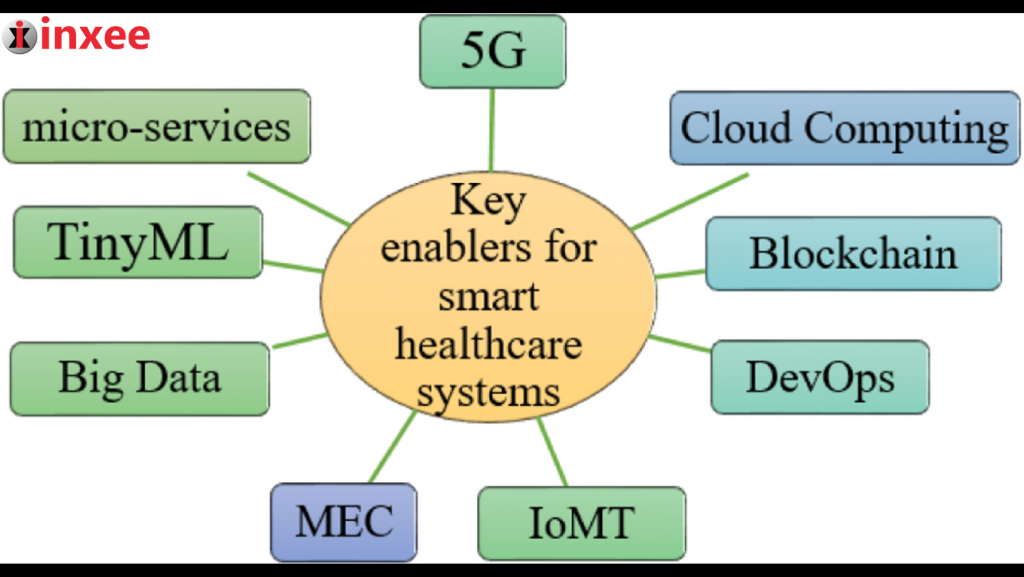Key Enablers for Intelligent Healthcare Systems
Intelligent healthcare systems rely on a variety of key enablers to enhance patient care, improve operational efficiency, and drive innovation. Here are the key enablers for intelligent healthcare systems:
- 5G: The high-speed and low-latency capabilities of 5G networks enable real-time communication, remote monitoring, and telehealth services. It supports the seamless transmission of large volumes of data, enabling rapid response and enhanced connectivity in healthcare applications.
- Cloud Computing: Cloud computing provides scalable and on-demand access to computing resources, allowing healthcare organizations to store, process, and analyze large amounts of data efficiently. It enables secure data storage, collaboration, and remote access to applications and services, facilitating the delivery of intelligent healthcare solutions.
- Blockchain: Blockchain technology ensures secure and transparent sharing of healthcare data among different stakeholders. It provides a decentralized and immutable ledger that enhances data integrity, privacy, and interoperability in healthcare systems. Blockchain can facilitate secure patient data exchange, streamline supply chain management, and support medical research.
- DevOps: DevOps practices promote collaboration, automation, and continuous integration and delivery in healthcare software development. It streamlines the development and deployment of healthcare applications, improving agility, scalability, and reliability.
- IoMT (Internet of Medical Things): IoMT refers to the network of interconnected medical devices, wearables, and sensors that collect and transmit health data. It enables real-time patient monitoring, remote diagnostics, and personalized healthcare. IoMT devices play a crucial role in data collection, enabling insights and interventions for improved healthcare outcomes.
- MEC (Multi-access Edge Computing): MEC brings computing resources closer to the edge of the network, reducing latency and enabling real-time processing and analysis of healthcare data. It supports applications such as remote monitoring, telehealth, and augmented reality in healthcare, enhancing responsiveness and user experience.
- Big Data: Big data analytics enables the processing and analysis of large and complex healthcare datasets. It uncovers patterns, trends, and correlations that can inform decision-making, disease prediction, and personalized treatments. Big data techniques help derive insights from diverse healthcare data sources, including electronic health records, genomics, and wearable devices.
- Microservices: Microservices architecture promotes modularity and scalability in healthcare systems. It allows for the development and deployment of smaller, independent services that can be easily integrated and updated. Microservices enable agility, flexibility, and faster innovation in the development of intelligent healthcare applications.
- TinyML: TinyML refers to the deployment of machine learning models on resource-constrained devices such as wearables and edge devices. It enables real-time inference and analysis of healthcare data locally, reducing the need for constant data transmission to centralized servers. TinyML supports intelligent decision-making at the edge and improves the efficiency of healthcare systems.
By leveraging these key enablers, intelligent healthcare systems can leverage advanced technologies, data-driven insights, and seamless connectivity to provide personalized, efficient, and effective healthcare services. These enablers contribute to the transformation of healthcare delivery, empowering healthcare professionals, and improving patient outcomes.










Leave a Reply